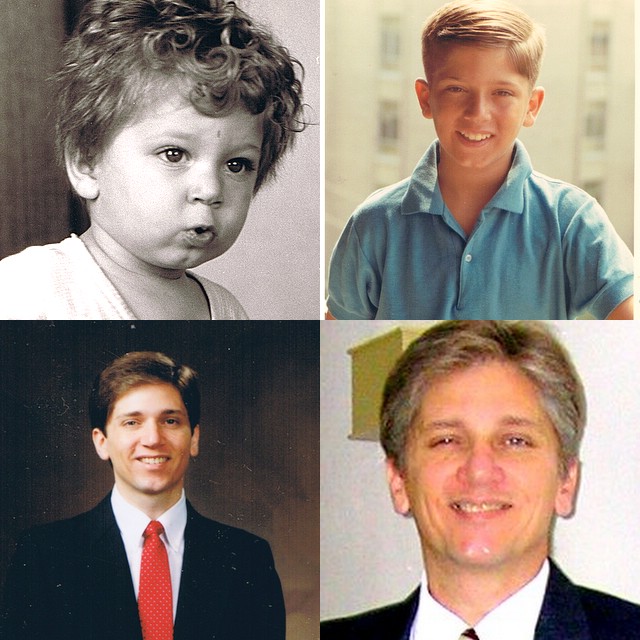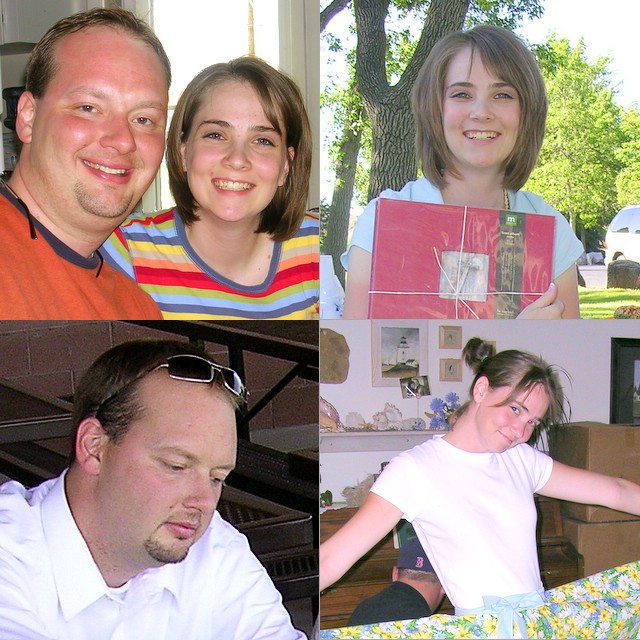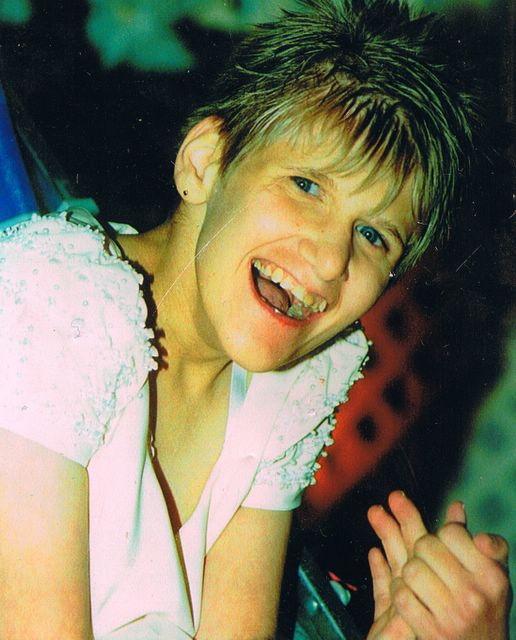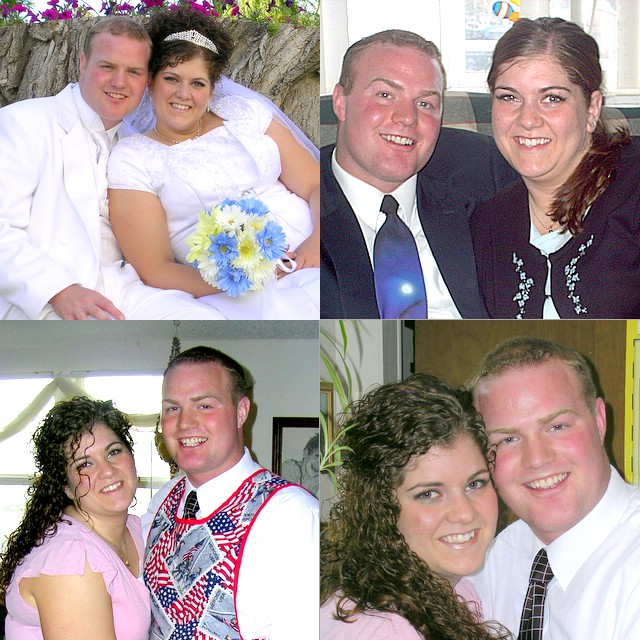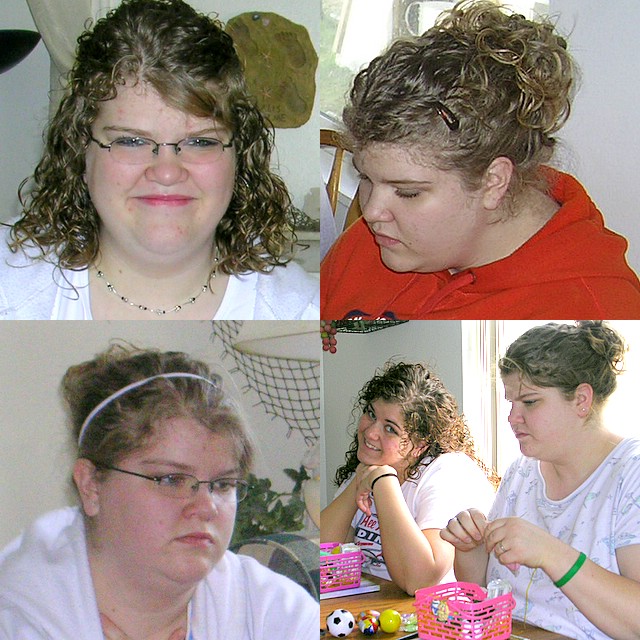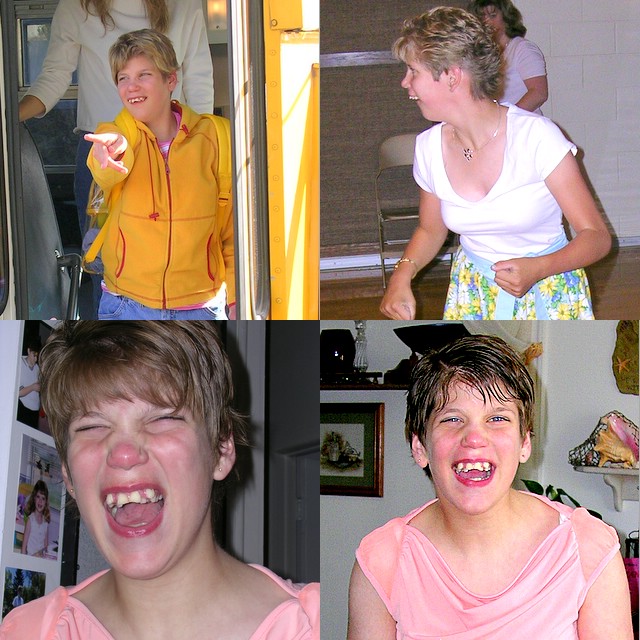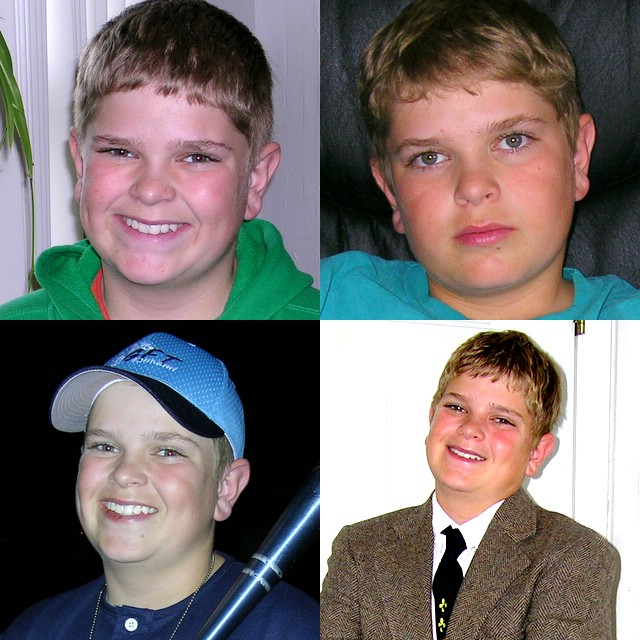Beirut Lebanon: Beautiful Then, And Again
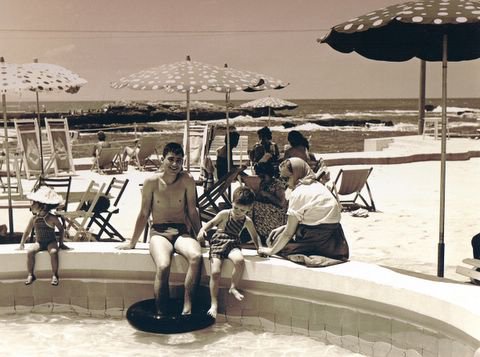 [October 30th] -- Many friends and acquaintances who know that I come from the Middle East always assume that I came to the United States because of the "backward nature" of the region. Oh, if they only knew.
[October 30th] -- Many friends and acquaintances who know that I come from the Middle East always assume that I came to the United States because of the "backward nature" of the region. Oh, if they only knew.
This is a photo of my mother, my brother Nabil and me [I'm the cute little tyke] enjoying ourselves on "Long Beach" in Beirut, Lebanon. My father took the picture in 1959. The beach was every bit as modern and "up to date" as any of the American beaches of the era. Notice that there isn't a single person wearing traditional Arab clothing. This was a time before Islamic fundamentalism took hold throughout the region. In addition, Beirut was a melting pot of cultures; there was no "right" or "wrong" religion, color or background. This "communal community" concept was long forgotten by the 1970's when Beirut was ravaged by a destructive and debilitating civil war. Slowly, Lebanon is beginning to revert back to its roots of openness and inclusiveness.
But, it's going to take some time yet.
Living In Florida Had It's Ups & Downs
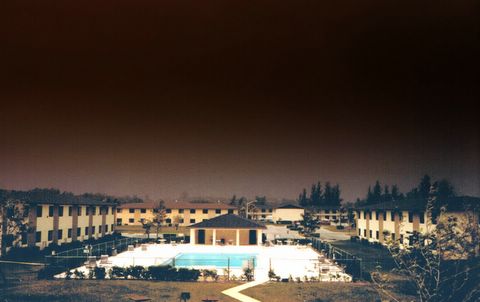 [October 25th] -- When you look out your living room window during a January blizzard, the "sun and fun" of Florida's warm-weather winters can seem very appealing. To me, Florida was a "nice place to visit, but I sure wouldn't want to live there [again].
[October 25th] -- When you look out your living room window during a January blizzard, the "sun and fun" of Florida's warm-weather winters can seem very appealing. To me, Florida was a "nice place to visit, but I sure wouldn't want to live there [again].
A new job took my family from St. Louis to West Palm Beach Florida in 1985. At first, it was really fun. Christmas day at the beach was amazing. We were always taking trips to explore all of the "family fun" that Florida had to offer. Disney World. Sea World. Busch Gardens. The list was almost endless. The fun continued until the warm and dry spring morphed into the hot and humid summer. We stopped traveling. We stayed in the house and tried to remain cool. We had just begun to get used to the heat when we 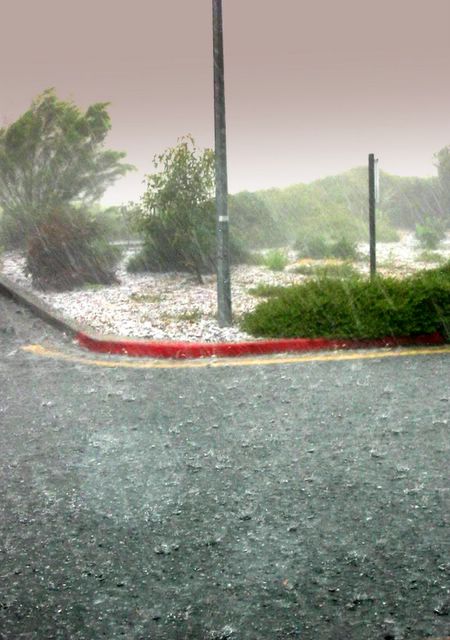 were introduced to the cycle of daily afternoon rainstorms.
were introduced to the cycle of daily afternoon rainstorms.
These weren't really rain storms; they were more like mini-hurricanes. Every afternoon at 5:00 p.m., the skies would darken and the air would become dense with moisture.
By 5:30 it would start to pour. The rain would come down with such force that it would sting and leave red marks on the skin. At 6:00, the sun would reappear and the two inches of water left on the roads would vaporize into steam. That sticky, humid, vaporized water would remain in the air until early the next afternoon, when the cycle would repeat itself.
Oh yes. Florida had a lot of wonderful things to see during the summertime. And we saw them. From our television set. And then we waited. Until winter, that is. When we could come out of the house without having to deal with the sauna that is Florida in the summer.
Weighty Issues
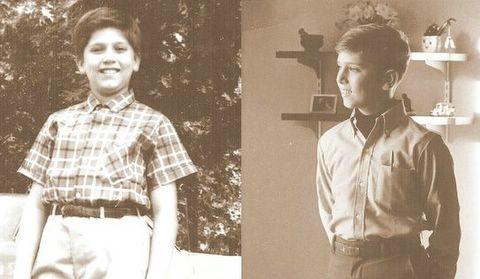 [October 24th] -- These two photographs of me were taken on my birthday one year apart. The image on the left was taken in 1967, at the age of 11. The one on the right was taken on my 12th birthday one year later. In 12 months, I went from pudgy and portly to slim and svelte. I didn't lose the weight on purpose. There was no diet or exercise regimen in place. I just stopped eating.
[October 24th] -- These two photographs of me were taken on my birthday one year apart. The image on the left was taken in 1967, at the age of 11. The one on the right was taken on my 12th birthday one year later. In 12 months, I went from pudgy and portly to slim and svelte. I didn't lose the weight on purpose. There was no diet or exercise regimen in place. I just stopped eating.
My mother was diagnosed as having the flue in early February, 1967. She became so ill that her doctor admitted her into the hospital for a few days of rest and recuperation. She died three days later when a blood clot broke off in her leg and lodged in her lungs. She leaped out of her bed and whispered, "Tell Rasem [my Dad] and the kids I love them" and fell onto the bed dead. Her death took away from me the will to live. Oh, I wouldn't have killed myself, but neither did I have any desire to interact with life. I stopped eating. I stopped playing with my friends. I sat in front of the television set all day and thought of my mother.
In mid 1968, my father moved us from the house I grew up in into a modern, high rise apartment. My dad bought some new furniture and got me some new clothes, and finally, a year after her death, I began to recognize the world around me again.
Although the sharp, hopeless pain has long since faded, I still miss my mom today. She was a very special person who guided me through love and compassion rather than the anger that so many parent's use. She was 40 when she died, and I, at 49, feel so very guilty that I have outlived her.
I love you Mom.
My, How Kids Have Changed ...
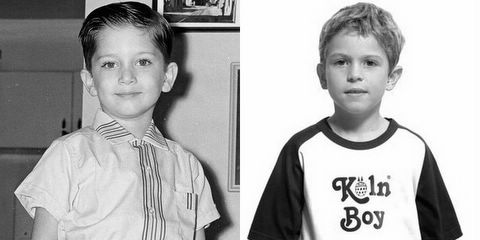 [October 23rd] -- The picture on the left is me at age five, in 1961. The image on the right is a typical 5 year-old today. Times, they are a changing.
[October 23rd] -- The picture on the left is me at age five, in 1961. The image on the right is a typical 5 year-old today. Times, they are a changing.
Getting ready for school was much harder a generation ago. I had to wet down my hair and slick it back. The "do" wasn't just hygiene, it was a work of art. All of my clothes had to be ironed. No really, I mean ALL my clothes. My t-shirt, my underwear, even my socks had to look "just so." Then, it was down the stairs where my Dad took a close look to make sure that I was someone he could be proud of. Throughout the day, at school, on the bus, at the baby sitters, adults made sure that we clean and presentable. At night, I began the process of getting ready for the next day.
Today, kids wake up 10 minutes before they have to be out the door, pick out their clothes from the pile on the floor that looks the cleanest, and shuffles out the door. The authority figures they come in contact with during the day, teachers, principals, bus drivers, can't intervene when the child's clothes are inappropriate. The parents have that authority, but are too busy, or self-absorbed to care.
I must say that I didn't much care for all the scrutiny growing up. Clean this. Fix that. Go there. Eat this. But in retrospect, it was well worth it. I was taught respect and self esteem. Today, I care how I look when I go out in public. I care about others. I value rules. This all came from my father demanding from the best I had. The kids today who never comb their hair, who wear clothes that are unkempt and dirty don't have a great deal of self-worth. They've been taught that.
Hey Dad, I guess you were right.
The Right Side Of The Road Is Wrong? What?
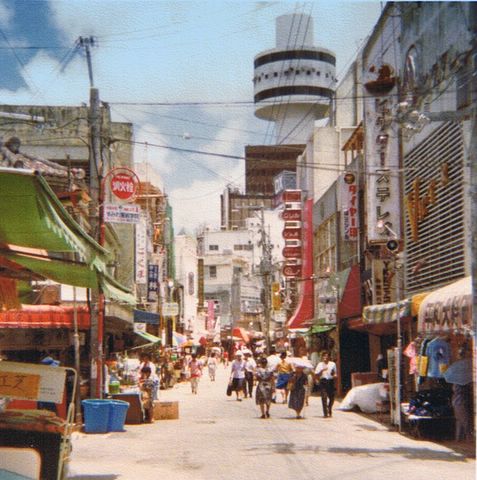 [October 18th] -- I joined the Air Force in 1978 to get away from Washington D.C. as much as I did to see the world. After three months of basic training at Lackland Air Force Base, Texas, I was assigned to a technical training squadron at Keesler Air Force Base near Biloxi Mississippi. My job was to be an "administrative assistant," a Radar O'Reilly for the squadron commander.
[October 18th] -- I joined the Air Force in 1978 to get away from Washington D.C. as much as I did to see the world. After three months of basic training at Lackland Air Force Base, Texas, I was assigned to a technical training squadron at Keesler Air Force Base near Biloxi Mississippi. My job was to be an "administrative assistant," a Radar O'Reilly for the squadron commander.
I graduated in the top 10% of my class, which provide me with several perks. My favorite was the "initial assignment guarantee," which let me choose my first station. "Where do you want to go?" asked the personnel specialist?" I thought for a moment and replied, "Anywhere that has right-side drive." I was happy to serve my country where ever they wanted me, but the thought of driving on the left side of the road scared me to death.
Three weeks later, my orders came: Kadena Air Base in Okinawa Japan. "Hey, wait a second," I began, "I was guaranteed right side drive!" The person in charged chuckled and told me to relax, that the Island of Okinawa, though part of the Ryukyu chain, was in fact right side drive. Cool. I arrived at Kadena a month later, and sure enough, the guy was right: RIGHT SIDE DRIVE.
After exploring Naha City for a few days, I began to see a logo on just about anything and everything governmental. It showed a two-lane road way with an arrow that moved from the right side to the left side of the road. There was a date of "7/30" as well.
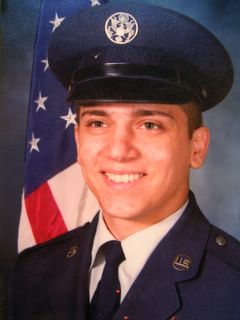 I asked a friend one day what it meant. I was stunned by his reply. "Oh, the U.S. is giving the island back to the Japanese on July 30th, and when they do, we have to start driving on the left side of the road."
I asked a friend one day what it meant. I was stunned by his reply. "Oh, the U.S. is giving the island back to the Japanese on July 30th, and when they do, we have to start driving on the left side of the road."
Unbelievable.
The week before the changeover, police from the main island of Japan began to arrive on the island. They covered all the street signs with canvas sacks. At midnight on July 30, the police stopped all road traffic throughout the island. Workers then began the process of turning the street signs the other way. By sunrise, they took off the sign covers. At 6:00 a.m., cars began to drive on the left side of the road. Now, this would have been difficult enough, but a small typhoon hit the island that same day. Cars were trying to drive on the "wrong side" while fighting 60 m.p.h. winds.
Unbelievable.
Over the next four months, new traffic lights were installed. Slowly, as the Japanese got used to the new system, the police were withdrawn and sent back to the mainland. Today, I doubt very many people remember much of that day. I sure do, though.
Unbelievable.
Another Redskin Sunday
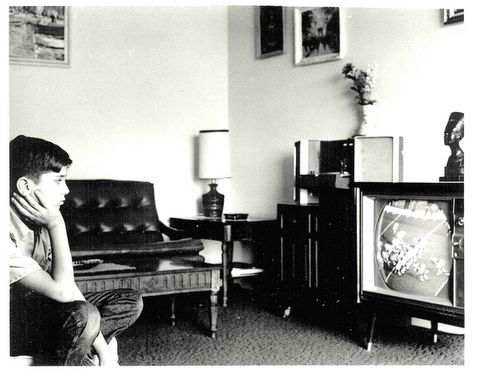 [October 13th] -- One of the nice things about having a father who was a top-notch photographer was having a great many quality pictures of yourself to look back on years later. One of the drawbacks, however was being staged so that the pictures "looked better."
[October 13th] -- One of the nice things about having a father who was a top-notch photographer was having a great many quality pictures of yourself to look back on years later. One of the drawbacks, however was being staged so that the pictures "looked better."
This picture was taken December, 1969, in our apartment in Falls Church, Virginia. I was watching the Redskins - Vikings football game and my father was "playing" with his cameras, changing lenses, clicking the shutter, and generally being bored. I was, as always, laying on the floor and watching the game, wearing a ratty t-shirt and my gym shorts. My dad, seeing a good picture possibility, had me put on my school clothes, comb my hair, and sit on the hassock. It took him about 15 minutes to set it up to where he liked the shot. *SNAP* -- and he was done. I missed most of the 3rd quarter -- luckily, the Redskins prevailed and I was able to enjoy the rest of the day.
Gee, I Don't Remember that Chair Being So Ugly
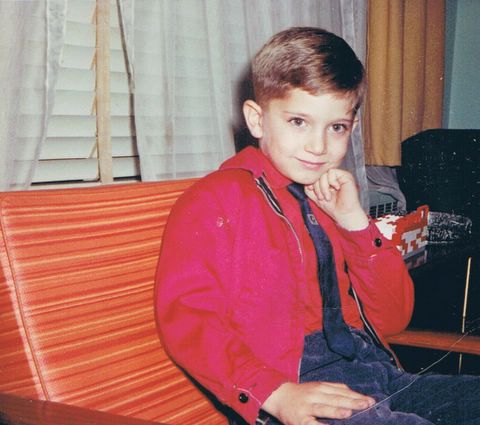 [October 12th] -- This picture of me was taken on Christmas Eve, 1962 -- I was six at the time -- in Alexandria, Virginia, just a "stones throw" from Washington, D.C.
[October 12th] -- This picture of me was taken on Christmas Eve, 1962 -- I was six at the time -- in Alexandria, Virginia, just a "stones throw" from Washington, D.C.
How different life was then. In our home, we had one phone [black, rotor-dial of course], one television [black & white] with four channels. There were no blacks or hispanics in my neighborhood, nor in my school. None of my friend's moms worked outside of the house, and they really did wear dresses and aprons when they worked around the house. All the dad's came home at the same time. President John Kennedy would live for another year. The "Cuban Missile Crisis" ended just two months before my dad took this picture. The flag at George Mason School still had 48 stars.
There is much about this time in our country's history that I don't miss -- the racism, the segregation, and the incessant clouds of tobbaco smoke that engulfed everyone's homes [I didn't know even one parent who didn't smoke]. I do miss, however, the innocence, the feel of familial closeness, the "aw shucks" and "gosh darn" way of talking. No "Simpsons" or "Law & Order: SVU." It was "Leave It To Beaver" and "Perry Mason."
I don't want to go back to the early 60's and re-live my youth, but there are times that I wish that parts of that era remained with me today.
Coming To America
 [October 10th] -- Have you ever wondered what it must have been like to be among the tens of millions who began a new life in the United States, who traveled across the Atlantic on ships headed for New York, waiting in unbridled excitement for that first glimpse of "Lady Liberty?"
[October 10th] -- Have you ever wondered what it must have been like to be among the tens of millions who began a new life in the United States, who traveled across the Atlantic on ships headed for New York, waiting in unbridled excitement for that first glimpse of "Lady Liberty?"
I am lucky to be able to say, "been there, done that."
My family was living in Beirut in 1959 when my parents decided to bring us to the United States. My father was born in Palestine and raised in the Middle East, my Mother was an American working overseas. Although both of my parents loved the region, both felt that our long term safety was better served in America.
We left Beirut and traveled to Athens on the Medina, a small ship that used to be part of the German navy during World War II. We stayed there for a few days before boarding a large ocean liner for our trip to New York, the "Queen Fredrika." I am the young boy in the picture [my brother Tim and my dad are also shown] so I don't remember a great deal about the trip. I do remember the gray and stormy October weather that buffeted the large ship. The weather turned calm a day out of New York, and we spent a great deal of time on the decks of the ship. We arrived in New York mid-morning. People started pointing at a tiny black dot as we grew closer to the city. Soon, the "dot" grew into the Statue of Liberty. Many of those on the deck pulled out small American flags and waved them as the drew near the dock.
It took a great deal of time to navigate through the harbor to the dock. Once there, many of the ship were herded down a ramp into a building while we went through customs. Once processed, New York City was ours. Because my mother was American, all of us were treated as returning citizens to the United States. I wish I had a great story to tell about Ellis Island, but it never became part of our "coming to America" story.
I love this country and all it stands for. I appreciate my roots and the values that I brought here from the Middle East, but I am grateful that my parents made this choice for me when I was young. Thanks, Mom. Thanks, Dad. I owe you.



